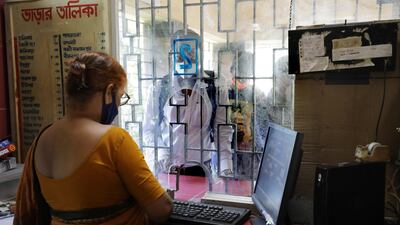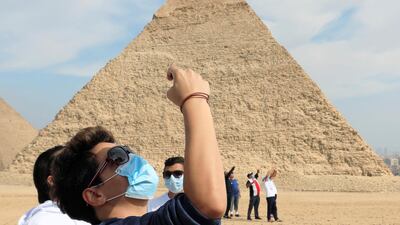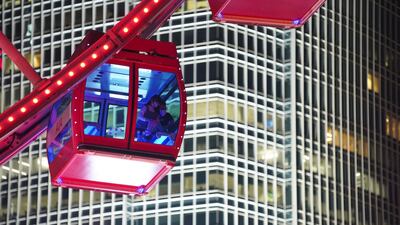Security forces were stationed across Amman and major cities on Tuesday night to enforce a total curfew after a surge in coronavirus cases deepened pressures on the health system and an economy in sharp retreat.
The lockdown started before midnight on Tuesday, when the health ministry announced a record 91 deaths from the pandemic. The new daily toll brought the total to 1,386.
Officials had said that strict measures were needed to stop a huge increase in cases in the past few weeks to 121,000, but waited until parliamentary elections on Tuesday to start the measure.
A statement by Minister Bisher Khasawneh said “the total curfew, planned to come into force after the parliamentary elections started at 11pm last night” will last until 6am on Sunday, November 15.
The vast majority of Jordanians are not allowed to leave their homes, apart from medical and pharmacy staff and those in vital supply sectors, such as fuel, official media said.
A police spokesman said the authorities “will deal with any breach of laws and the instructions” and will be monitoring social media for any material deemed as undermining the curfew.
Coronavirus around the world
Residents of Amman said the curfew in the capital appeared to be strictly enforced, with police vehicles on patrol and stationed at main intersections.
Relatively few Jordanians voted in the parliamentary elections on Tuesday, which, traditionally marred by low turnout , were further undermined this year by the pandemic.
The World Bank expects the coronavirus to contribute to economic contraction by 3.5 per cent this year in Jordan, after years of stagnation. Unemployment is running at 23 per cent and public debt has risen steadily to beyond the $42 billion gross national product.
The official poverty rate, comprising those who live on less than $100 a month, is 15.7 per cent of the 10 million population.
Ultimate decision making in the kingdom of 10 million people rests with King Abdullah II. Parliament has limited influence and elections are traditionally marked by low turnout and weighted in favour of the country’s East Bank tribes in outlying regions.
The authorities did not release overall turnout numbers but said turnout in the five electoral districts of Amman, which has four million inhabitants, ranged from 14.8 per cent to 25.6 per cent.














